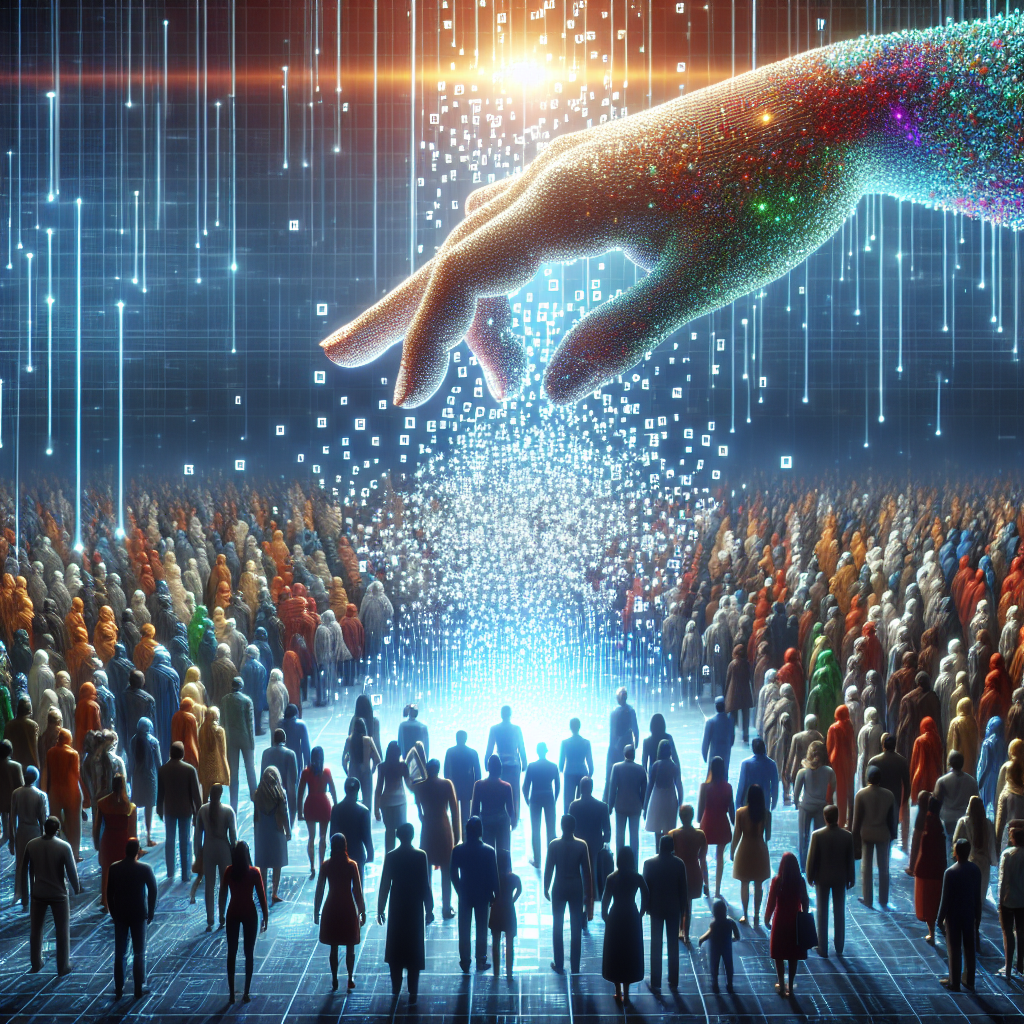The Power of AI Democratization: A Game Changer for Society
Artificial Intelligence (AI) is no longer just a buzzword used in science fiction movies or computer science classrooms. It has become an integral part of our daily lives, from virtual assistants like Siri and Alexa to self-driving cars and personalized recommendations on social media platforms. AI has the potential to revolutionize almost every industry, from healthcare to finance, and education to entertainment. However, the power of AI has often been concentrated in the hands of a few large tech companies and research institutions, limiting its accessibility and impact on society as a whole.
The democratization of AI refers to the process of making AI technology more accessible and affordable to a wider range of users, including small businesses, startups, non-profit organizations, and individuals. This trend is driven by advancements in AI technology, such as cloud computing, open-source software, and automated machine learning tools, that have made it easier for anyone to build and deploy AI applications without the need for specialized expertise or resources. As a result, AI democratization has the potential to level the playing field in terms of innovation, economic growth, and social impact.
One of the key benefits of AI democratization is its potential to empower smaller organizations and individuals to harness the power of AI for social good. For example, AI can be used to analyze large datasets and identify patterns and trends that can help address social issues such as poverty, inequality, and climate change. By democratizing AI, we can enable grassroots organizations and community activists to leverage AI technology to make a positive impact on their communities and society as a whole.
Another benefit of AI democratization is its potential to drive innovation and economic growth. By lowering the barriers to entry for AI development, we can unlock the creativity and ingenuity of a wider range of individuals and organizations, leading to the creation of new products, services, and industries. This can stimulate job creation, entrepreneurship, and economic development, particularly in regions that have traditionally been underserved by the tech industry.
AI democratization also has the potential to promote diversity and inclusion in the tech industry. By making AI technology more accessible and affordable, we can empower individuals from underrepresented groups, such as women and minorities, to participate in the development and deployment of AI applications. This can help address the diversity gap in the tech industry and ensure that AI technology is developed and used in a way that reflects the needs and values of a diverse society.
Despite the many benefits of AI democratization, there are also challenges and concerns that need to be addressed. For example, there is a risk that AI technology could be misused or abused if it falls into the wrong hands. This could lead to privacy violations, discrimination, and other harmful consequences. In order to mitigate these risks, we need to establish clear guidelines and regulations for the ethical use of AI technology, as well as mechanisms for accountability and transparency.
Another challenge of AI democratization is the potential for job displacement and economic inequality. As AI technology becomes more widespread, there is a risk that certain jobs and industries could be automated, leading to job losses and economic disruption. To address this challenge, we need to invest in education and training programs that prepare individuals for the jobs of the future and ensure that the benefits of AI technology are distributed equitably across society.
In conclusion, the democratization of AI has the potential to be a game changer for society, unlocking new opportunities for innovation, economic growth, and social impact. By making AI technology more accessible and affordable, we can empower individuals and organizations of all sizes to harness the power of AI for the greater good. However, in order to realize the full potential of AI democratization, we need to address the challenges and concerns that come with it, such as ethical considerations, job displacement, and economic inequality. With the right policies and practices in place, we can ensure that AI technology is developed and used in a way that benefits society as a whole.
FAQs:
Q: What is AI democratization?
A: AI democratization refers to the process of making AI technology more accessible and affordable to a wider range of users, including small businesses, startups, non-profit organizations, and individuals.
Q: Why is AI democratization important?
A: AI democratization is important because it has the potential to empower smaller organizations and individuals to harness the power of AI for social good, drive innovation and economic growth, and promote diversity and inclusion in the tech industry.
Q: What are some of the benefits of AI democratization?
A: Some of the benefits of AI democratization include empowering grassroots organizations and community activists to address social issues, stimulating job creation and entrepreneurship, and promoting diversity and inclusion in the tech industry.
Q: What are some of the challenges of AI democratization?
A: Some of the challenges of AI democratization include the risk of misuse or abuse of AI technology, job displacement and economic inequality, and the need for clear guidelines and regulations for the ethical use of AI technology.
Q: How can we address the challenges of AI democratization?
A: We can address the challenges of AI democratization by establishing clear guidelines and regulations for the ethical use of AI technology, investing in education and training programs for the jobs of the future, and ensuring that the benefits of AI technology are distributed equitably across society.

